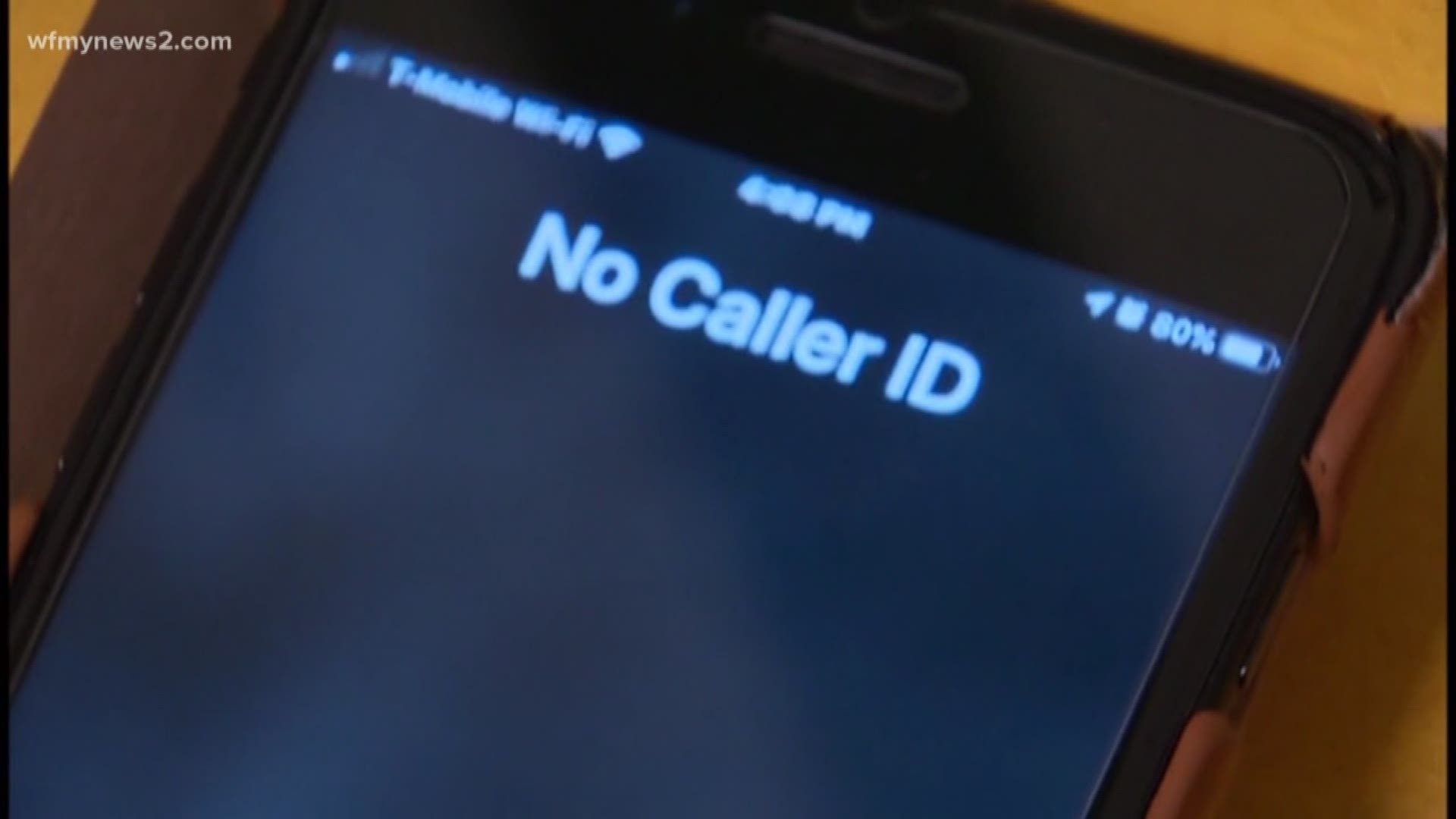GREENSBORO, N.C. — The 2020 presidential election is attracting scammers hoping to get away with money and personal information that could possibly lead to identity theft. That's according to the Better Business Bureau. The latest BBB report shows scammers are using phony political fundraising calls to trick Americans into "donating" to a presidential candidate.
Here's how the political robocall scam works:
You answer the phone and get a recorded voice on the other side of the line. The recording might even sound like one of the presidential candidates. But, it's not! The recording pressures you to donate money immediately to see your favorite presidential candidate elected. Once you decide to give, you're transferred to a live person who takes your credit card information. At that point, the phony caller makes off with your hard earned money!
The BBB is offering the following tips to avoid robocall scams:
- Screen your calls. If a call comes in from a number you don't recognize, don't answer. Even if the number looks familiar, be wary. Check the number on Whitepages.com (a BBB Accredited Business) to see if it's been flagged with a fraud alert.
- Don't respond to unsolicited robocalls. If you receive an unsolicited robocall that seems to come from a legitimate business, be cautious. Scammers can fake caller ID, and businesses are only allowed to call you via robocall with your written permission. If someone is calling you out of the blue, it's most likely a scam. Best practice is to hang up the phone without interacting with the call. Don't "press 1 to be removed from our list;" that just confirms to the scammer that your number is good.
- Register with the Do Not Call Registry. This step won't prevent scammers from calling you, but it will reduce the number of legitimate marketing calls you receive, which will make it easier to identify the fraudulent ones. If you live in the United States, call 888-382-1222 or register online at Donotcall.gov. If you live in Canada, visit the National Do Not Call List.
The Federal Trade Commission recommends three key steps consumers can take to help reduce unwanted calls: Hang up. Block. Report.
- Hang up. If you pick up the phone and get a recorded sales pitch, hang up. The call is illegal. Don't speak to them. Don't press a button to supposedly remove your name from a list. (That could result in even more calls.) Hang up. Furthermore, alert your employees that if they see a call that says it's from the IRS or Social Security Administration, don't trust it. Scammers know how to fake the Caller ID information.
- Block. You can reduce the number of unwanted calls you get by using call-blocking technologies. Your options differ depending the model of your phone, service provider and whether you use a traditional landline or internet phone service. Visit ftc.gov/calls for advice.
- Report. After you hang up, report the unwanted or illegal call to the FTC at ftc.gov/complaint. The more information they have about the call, the better they can target our law enforcement efforts.
For more information on how to avoid, stop, and report robocall scams, click here.

